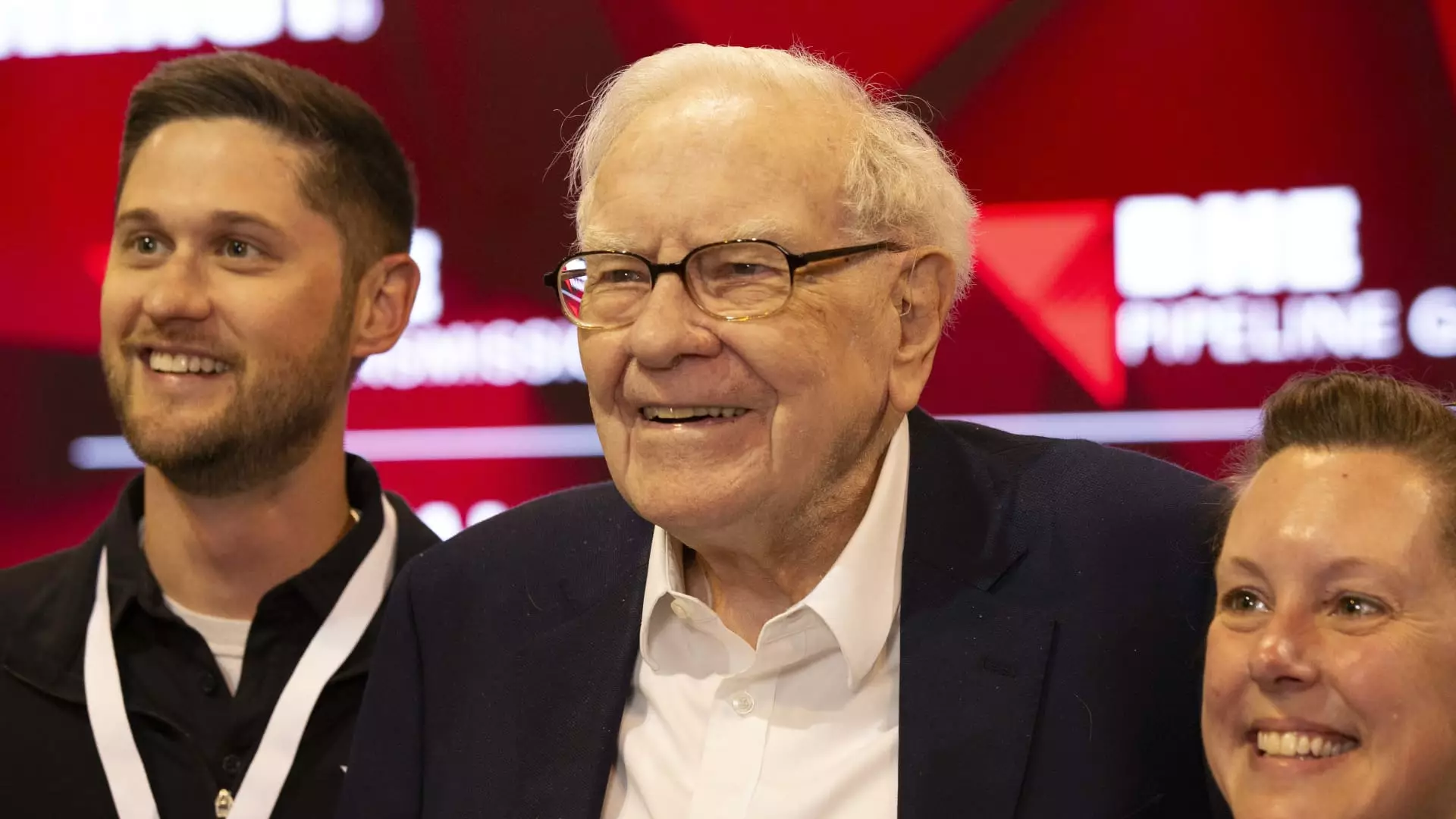Warren Buffett, the venerable chief of Berkshire Hathaway and a figure of immense respect in the investing community, is poised to communicate crucial insights to shareholders ahead of what promises to be an eventful annual letter. As circumstances unfold, including a budding trade war, severe environmental calamities, and fluctuations in stock holdings, investors are keen to decipher Buffett’s perspective. At 94, the “Oracle of Omaha” continues to carry the weight of expectations as he prepares to address these dynamic challenges.
The devastating wildfires in California have ignited serious concerns, particularly given their potential financial ramifications for Berkshire Hathaway’s reinsurance arm. While Buffett’s company does not hold a dominant position in the Californian insurance market, the repercussions of extensive insured losses could prove significant. Analysts have pointed out that the anticipated losses may surpass $40 billion—numbers that raise red flags for even the most resilient insurance entities. James Shanahan, a Berkshire analyst at Edward Jones, expressed caution, suggesting that there is considerable uncertainty regarding the extent of Berkshire’s exposure to these environmental disasters.
Consensus estimates point to potential losses in the $1 billion range stemming from Berkshire Reinsurance, alongside an additional $150 million from its Primary insurance operations. Even with Geico, one of the leading auto insurers, situated in California, the reliability of claims is under scrutiny. While analysts like Catherine Seifert assert that while losses are expected, they are manageable, the wildfires nonetheless exemplify a broader theme of unpredictability affecting major corporations.
As global trade tensions resurface, Buffett is anticipated to revisit themes he explored extensively in prior years. The reintroduction of substantial tariffs on imports from key trade partners, including Mexico and Canada, alongside China, poses significant questions about the broader economic landscape. Historically, Buffett has criticized such tariffs, labeling them as an indirect tax on consumers, which could lead to increased prices and inflationary pressures.
Investors are particularly interested in how these policies are affecting Berkshire’s diverse portfolio. Insights into how operating companies within Berkshire are managing the challenges related to heightened import costs, such as those faced by businesses reliant on lumber from Canada, could prove revealing in terms of Buffett’s overall analysis of market conditions.
Stock Market Maneuvers: Selling and Strategy
Recent movements in Buffett’s stock portfolio reflect a strategic reshuffling that is garnering attention. The decision to divest additional Bank of America shares has brought the total below 700 million, a threshold viewed by many analysts as critical. The ongoing pattern of selling shares rather than acquiring reflects a broader hesitance to engage aggressively in the current market, leading some to speculate that Buffett perceives stock valuations as inflated. Piper Sandler’s analyst R. Scott Siefers echoed these sentiments, suggesting that this enduring trend of selling over buying indicates Buffett’s cautious stance on the future of the stock market.
Berkshire Hathaway’s cash reserves have now exceeded $300 billion, a figure that underscores Buffett’s strategy of waiting for favorable investment opportunities to materialize, particularly in an expensive market landscape. This accumulation highlights both a prudent approach to risk management and a willingness to bide time while evaluating potential investments amid uncertainty.
Transitioning Leadership: A Focus on Succession
In a significant year for Berkshire Hathaway, Buffett has also been navigating internal matters, primarily concerning succession planning. The complete acquisition of Berkshire Hathaway Energy underscores Buffett’s preparation for a seamless transition of leadership to Greg Abel. The strategic buyout, alongside the acquisition of Pilot Travel Centers from the Haslam family, illustrates Buffett’s intent to consolidate control over key assets and ensure a smooth handover as he charts his path towards retirement.
As Buffett emphasizes this transition, many shareholders may perceive it as a crucial juncture for the company. Analysts like Shanahan suggest that Buffalo’s actions demonstrate an effort to prepare Berkshire Hathaway for a future under Abel’s guidance, potentially reshaping the company’s strategic priorities.
With a plethora of unprecedented challenges and strategic shifts on the horizon, Buffett’s forthcoming letter will undoubtedly provide valuable insights into his reflections on the current economic climate. The convergence of environmental disasters, trade tensions, and major shifts within his portfolio sparks curiosity among investors about what lies ahead for Berkshire Hathaway. As the Oracle of Omaha addresses questions on market dynamics, insured losses, and the future of his company, his insights will be closely scrutinized, revealing the mindset of one of the most influential figures in investing history.

